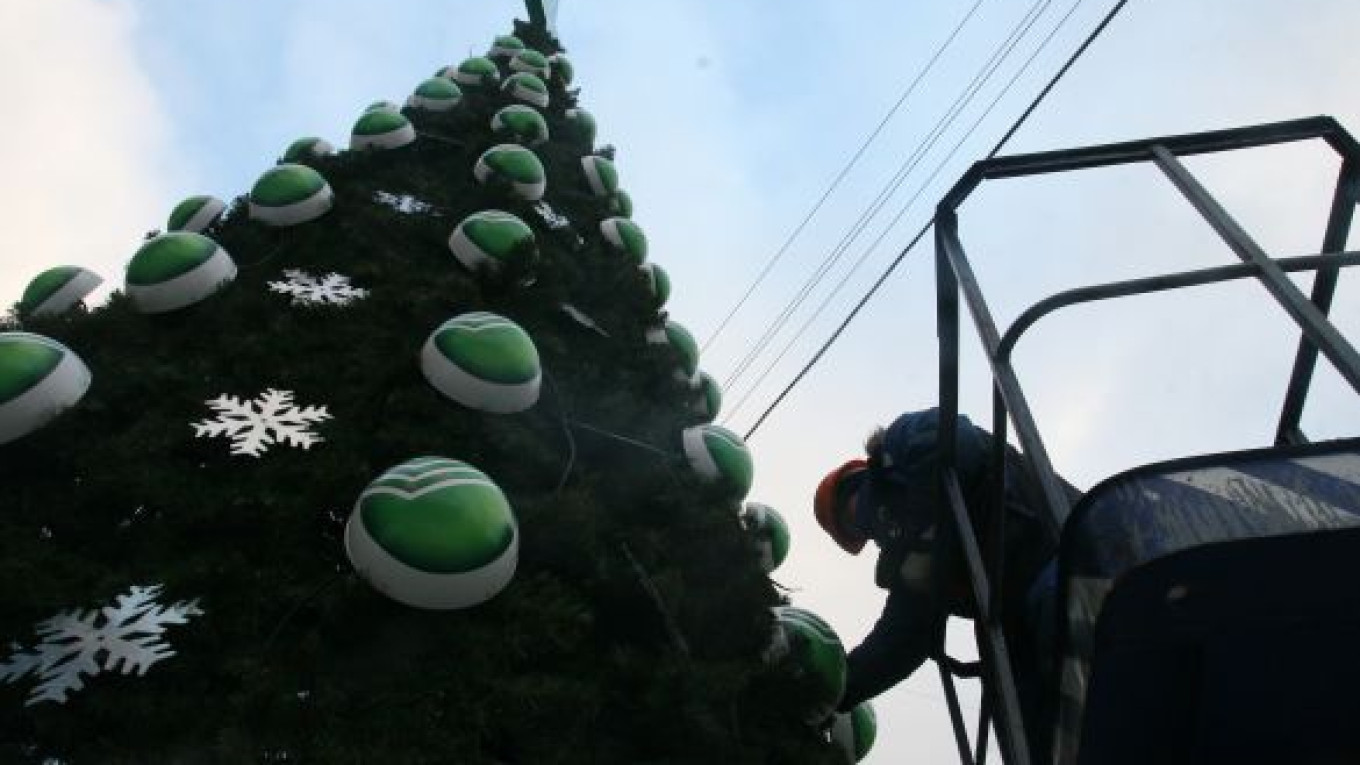The country will enjoy three extended public holidays next year: 10 days for the New Year, five days for May Day and four days for Victory Day, according to a decree signed by Prime Minister Dmitry Medvedev on Wednesday.
After an extra working day on Saturday, Dec. 29, the 10-day New Year break will start Dec. 30 and run through Jan. 8, the day after Russian Orthodox Christmas.
The May Day holiday will last from May 1-5 (Wednesday though Sunday), while the Victory Day celebration will last May 9-12 (Thursday through Sunday).
While the longer New Year holidays have become the norm since 2005, the possibility of longer spring holidays was discussed in February this year and fully supported by then-Prime Minister Vladimir Putin and all Duma fractions. The subsequent extension of the Victory Day holiday coincided with the date of Putin's inauguration, promoting talk that Putin hoped Muscovites would use the extra time to go to their country dachas rather than hit the streets to protest his return to the Kremlin. Nonetheless a huge demonstration erupted the day before his inauguration, and smaller protests continued throughout the week.
According to a 2010 survey conducted by Superjob.ru, people strongly prefer shorter winter and longer spring holidays. While the New Year celebrations tend to be costly with presents and alcohol, more free days in May are seen as beneficial for spring cleaning and tending to garden plots.
The official holidays included in Medvedev's decree are New Year's (Jan. 1-5), May Day (May 1-2) and Victory Day (May 9). Other public holidays including Defender of the Fatherland Day (Feb. 23), International Women's Day (March 8). Russia Day (June 12) and National Unity Day (Nov. 4) are not affected.
Related articles:
A Message from The Moscow Times:
Dear readers,
We are facing unprecedented challenges. Russia's Prosecutor General's Office has designated The Moscow Times as an "undesirable" organization, criminalizing our work and putting our staff at risk of prosecution. This follows our earlier unjust labeling as a "foreign agent."
These actions are direct attempts to silence independent journalism in Russia. The authorities claim our work "discredits the decisions of the Russian leadership." We see things differently: we strive to provide accurate, unbiased reporting on Russia.
We, the journalists of The Moscow Times, refuse to be silenced. But to continue our work, we need your help.
Your support, no matter how small, makes a world of difference. If you can, please support us monthly starting from just $2. It's quick to set up, and every contribution makes a significant impact.
By supporting The Moscow Times, you're defending open, independent journalism in the face of repression. Thank you for standing with us.
Remind me later.


